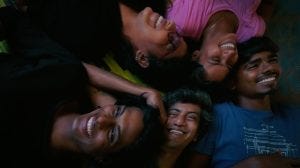THE HUMAN SURGE 3
Notes from Locarno, 2023
Another confession. When I first attended the Locarno Film Festival in 2017, I wrote 33 articles in ten days. During the festival, I reviewed 23 films, interviewed seven directors, summarised two press conferences and wrote one preview. I was paid nothing by my accredited outlet for this masochistic eff…
Keep reading with a 7-day free trial
Subscribe to Cinema Year Zero to keep reading this post and get 7 days of free access to the full post archives.





